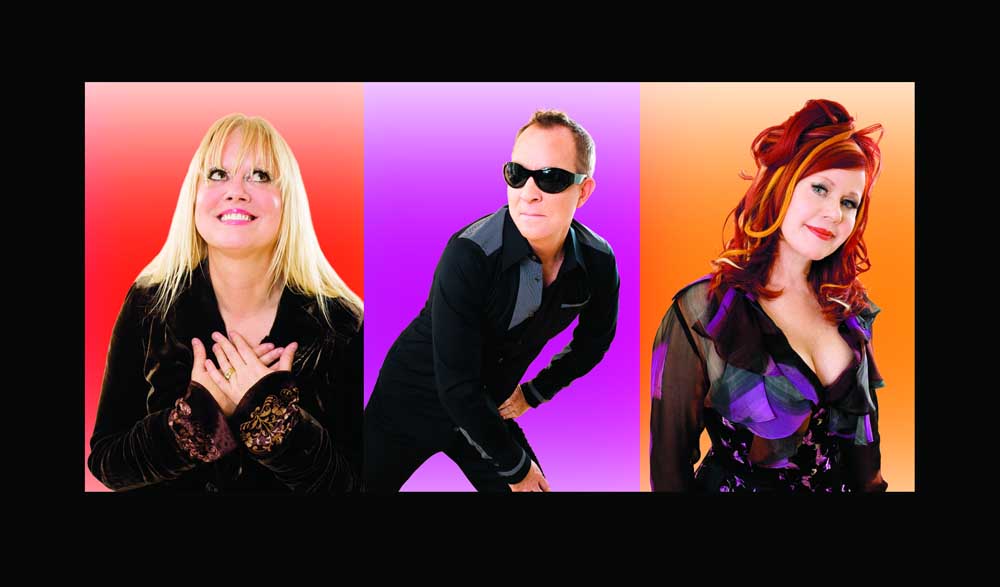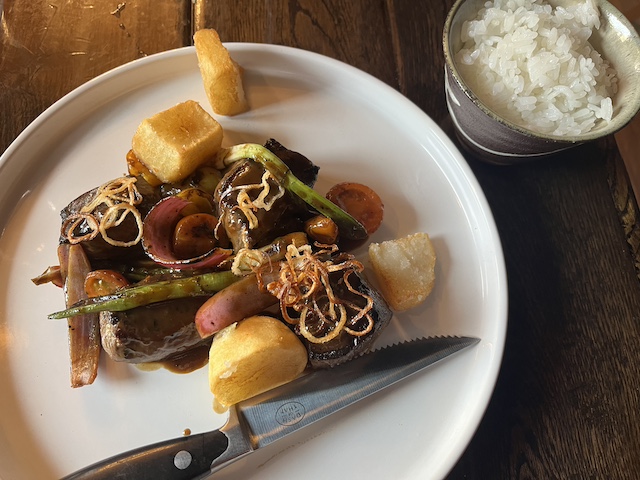The B-52s rock (lobster) in Bend
Published 12:00 am Thursday, August 8, 2019

- New wave/party rock band The B-52s — from left, Cindy Wilson, Fred Schneider and Kate Pierson — will perform at Les Schwab Amphitheater on Saturday as part of its 40th-anniversary tour. Fellow new wave hit-makers OMD and Berlin will also perform. (Pieter M. Van Hattem/Submitted photo)
If it wasn’t for “Cosmic Thing,” The B-52s might not be in the midst of a multiyear, 40th anniversary celebration.
The album, which spawned the band’s biggest hit, the kooky party anthem “Love Shack,” released in 1989, three years after its previous album, “Bouncing Off the Satellites.” That album was the group’s last with founding guitarist Ricky Wilson, who died of AIDS in the midst of recording in 1985. The rest of the group — co-lead vocalists Fred Schneider, Kate Pierson and Cindy Wilson (sister of Ricky Wilson) and multi-instrumentalist/drummer Keith Strickland — went on hiatus shortly after “Satellites” was released.
“We started out as friends, had our big fights and this and that, and wound up being good friends again a while back,” lead vocalist Fred Schneider said recently from Seattle ahead of rehearsals for the next leg of the band’s 40th anniversary tour, which includes fellow new wave hit-makers Berlin and OMD. “And the reception for ‘Cosmic Thing’ once it really got going was just mind-blowing. It was bittersweet, yeah, but Keith (Strickland, founding drummer and later guitarist after Wilson’s death) is such an amazing musician, it worked.”
The band’s 40th anniversary tour heads to Les Schwab Amphitheater on Saturday. While The B-52s formed in 1976, making the 40th-anniversary tag off by a few years, the group’s self-titled, debut album released in 1979. The tour also coincides with an upcoming book and documentary (produced by Fred Armisen), and Schneider teased a box set with two new songs featuring Strickland, who retired from the road in 2012. (A new studio album is less likely, he said; the band’s most recent full-length, “Funplex,” released in 2008.)
“Cosmic Thing” also turns 30 this year. Despite the album’s success, which kicked off a renaissance for The B-52s that included movie and TV placements in the live-action “Flintstones” movie (1994), “Rocko’s Modern Life,” “The Simpsons” and more, it wasn’t a runaway hit, Schneider said.
That’s something the band was used to. While the group had hits starting with “Rock Lobster” and “Planet Claire” on the first album, upon initial release those songs were nowhere near the ubiquity they enjoy today, with “Rock Lobster” peaking at No. 56 on the Billboard Hot 100 in 1980.
“We were popular with alternative and college radio, but mainstream radio wouldn’t touch us,” Schneider said. “They wouldn’t even touch ‘Love Shack’ until I went around while Kate and Cindy did sound check, and I went with my A&R person to beg them to play it. I don’t even think the record company got it. And now, you hear it every wedding, I hear, so you just gotta beg.”
The band’s back story sounds almost too perfect, considering its surrealistic songs, embrace of thrift-store kitsch and fashion and punk attitude: Its five members held an impromptu jam session after sharing a round of flaming volcano drinks at a Chinese restaurant in Athens, Georgia.
“We just did what we just do,” Schneider said. “Kate could play piano, Keith could play drums, Ricky played guitar and he’s a mean bongo player, and I can hit a cowbell for 6½ minutes straight without missing the beat. So we had something going, but we thought, we’re gonna do our own thing. We aren’t gonna copy anybody, and we probably couldn’t. Never tried.”
Schneider, who wrote a book of poems while attending the University of Georgia, developed a distinct speak-sing style, or sprechgesang, to deliver his poetry over the music.
“When I was in college, the last thing I did for creative writing was a book of poetry because I was too lazy to do anything else,” Schneider said. “And I knew I was dropping out, but once I started writing poetry, I really got into it. When the band started, some of the poems became lyrics in our songs. And I like Dada and surrealism.”
He had little experience playing music before The B-52s.
“Keith and I made basement tapes, and we had one band, one show called Night Soil,” Schneider said. “We played for three hours, the same four songs over and over, and nobody left.”
The group’s sound began to emerge on songs such as “Rock Lobster,” with its noodle-y, surf-inspired riff and non-sequitur references to “bikini whales” and other made-up sea life. It was helped along by the members’ inexperience and a lack of like-minded bands on the Athens scene.
“There was no scene except college bands playing — like boogie bands and stuff, beach music,” Schneider said.
He dismissed any influence that might have had on the group’s more surf-rock tendencies.
“Well, Ricky had a Mosrite guitar — well, no, he had a Sears guitar at first,” he said. “It just sounded like that because we had — I guess ‘Rock Lobster’ is the real surf, I guess you’d say.”
Economics played a role in the band’s development, too. Ricky Wilson often played with just three or four strings on his guitar, a direct result (at least in part) of not having much money.
“If we broke a string, we couldn’t afford a new one,” Schneider said. “We all had terrible jobs — me, I finally had a good one. But Keith and Ricky worked at the bus station; Kate worked at the local rag, we called it at the time, because she worked for some evil person. Cindy worked at the Whirly-Q Luncheonette at Kress’s (department store) making peachy burger melts, so there wasn’t that much money to go around.
“And Ricky liked Joni Mitchell — was passionate about Joni Mitchell,” he continued. “(He) actually learned to play the guitar from public TV. So he liked open tunings.”
Following the early success of “Rock Lobster” in the underground in the late ’70s, The B-52s started playing in New York City. There, the group finally found like-minded compatriots in the midst of the burgeoning punk scene.
“Apparently, The Cramps were at our very first show at Max’s Kansas City (in New York City), and they liked us,” Schneider said. “We got along with Talking Heads, Blondie, you know — and we liked those bands, so it was great to hang and meet them.”






